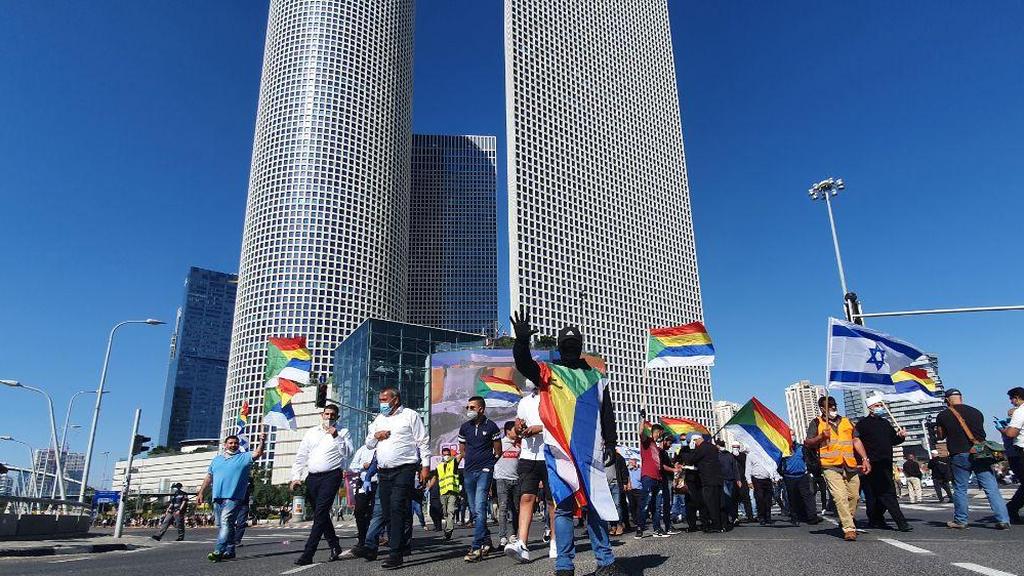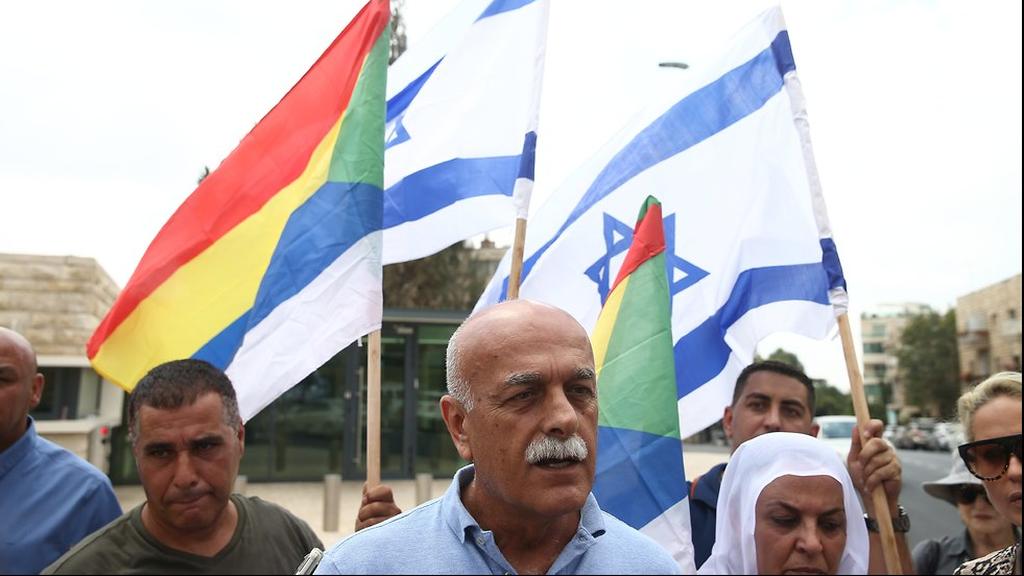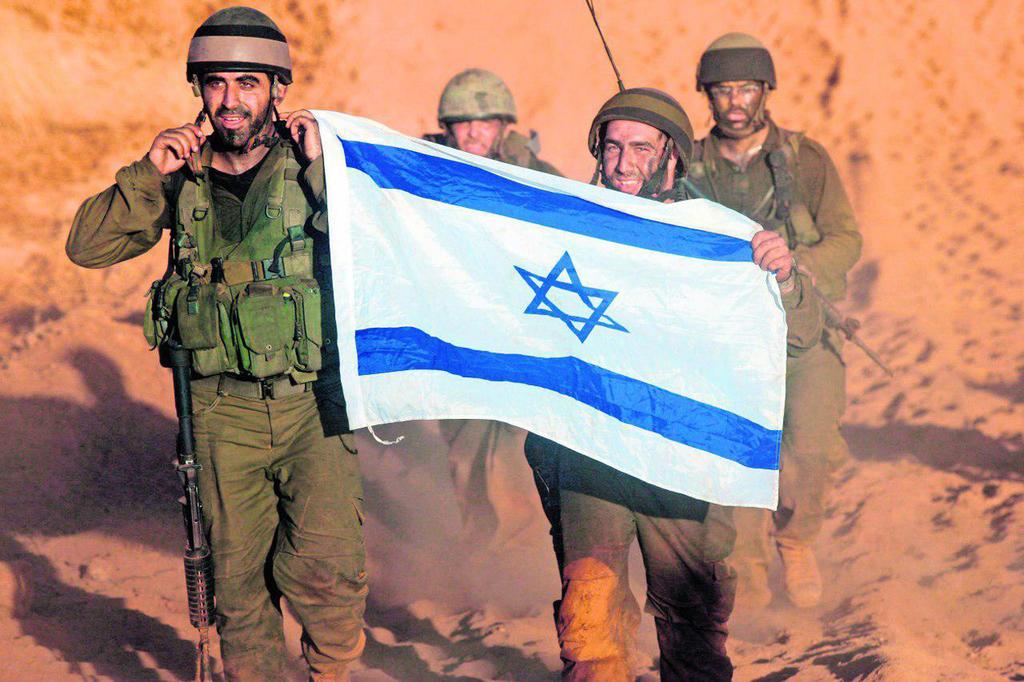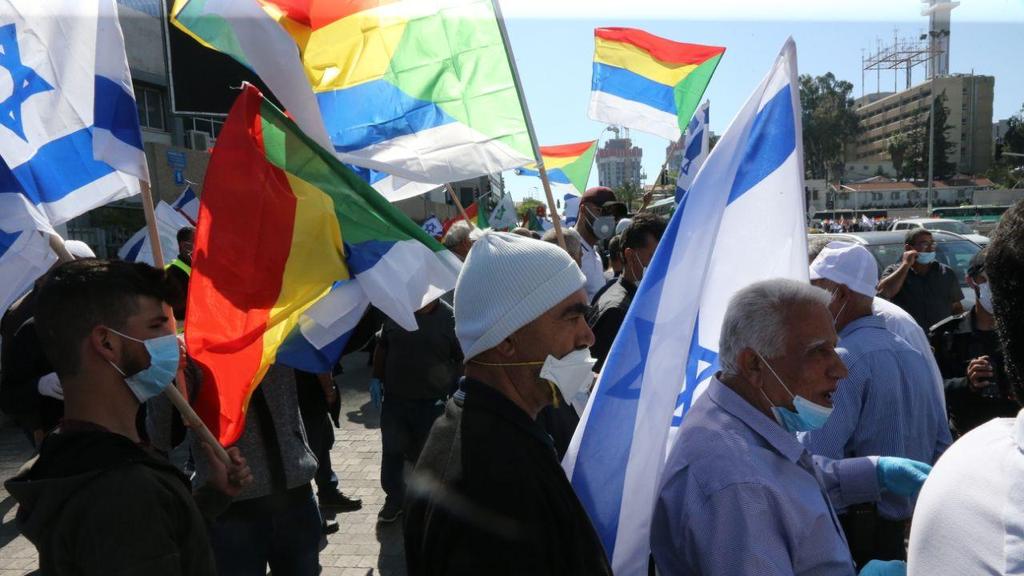Getting your Trinity Audio player ready...
The Druze community in Israel goes largely unnoticed until one of its sons dies in defense of the nation. Only then do the media, the public, IDF officers and government ministers embrace the bereaved families and share in their grief.
The Druze families in turn will bow their heads, even though the funerals and ceremonies contradict their teachings that the body has no value after a person has died, since the soul has transmigrated and is already reincarnated in a newborn baby.
4 View gallery


Members of the Druze and Circassians communities protesting last week in Tel Aviv over lack of government aid
The community is one of the smallest minorities in Israel - comprising just 1.6% of the general population and 7.6% of Arab society.
Until just two years ago, after the Nation-State Law was passed, with its provision that the country is the state of the Jews, no one talked of the discriminatory action taken by the Israeli government against the Druze.
Tens of thousands marched in the streets in protest, demanding equal rights and treatment entitled to them by the life bond between themselves and the Jews of Israel.
Yet some of those responsible for the current situation are the so-called leaders of the community, or at least those who pretend to lead it.
They remained frozen in place and never took advantage of the democratic tools at their disposal to achieve those equal rights and privileges.
Instead of publicly fighting for what their people deserved, they shamelessly decided not to bite the hand that feeds them.
And in turn, the leaders of the country learned over the years that the so-called Druze leadership simply wants a pat on the back, prestige and to be honored.
For those community leaders, a visit by a minister to their home is as important as the budgets of a school, or a new soccer pitch or better roads.
These personal connections fattened the pockets of Druze businessmen, who made use of them to also promote their relatives and friends. But they completely disregard the real needs of the community.
From the perspective of Israel's decision-makers, this desire for recognition and lip service has saved the nation millions of shekels.
Troublingly, this is still the nature of the relationship between the community leaders and lawmakers, the latter wrongly believing that this is also what the community wants.
And if some do complain about the lack of equality, the country quickly promotes Druze members of the military, dedicates a roundabout to a fallen soldier or invite them to participate in the annual Independence Day torch-lighting ceremony.
The state could have answered the cries of the Druze by transferring adequate funding for their villages, thereby bridging social gaps 72 years in the making, but instead continue to choose the ego stroking of its so-called leaders.
But last week, the Druze community had finally had enough, and its leaders came out in protest over the lack of financial consideration.
They are frustrated that they cannot provide their residents with basic amenities like schools, roads, parking lots, community centers and public parks, while the government gives them none of the funding they were promised in an attempt to slightly rectify these issues.
Allocation of budgets is usually conditioned on the Druze community's ability to collect at least 80 percent of municipal taxes, without taking into consideration the fact that these are disadvantaged, low socio-economic communities, not to mention the lack of industrial zones that can provide a proper source of income for businesses.
Demonstrations of respect must be replaced by plans for to improve schools, cronyism must be replaced by development budgets and the torch-lighting ceremonies must be replaced by road construction.
Last week's protest was a shot across the bows, hinting at these battles to come.
No more will the Druze community leaders sit on the sidelines.




